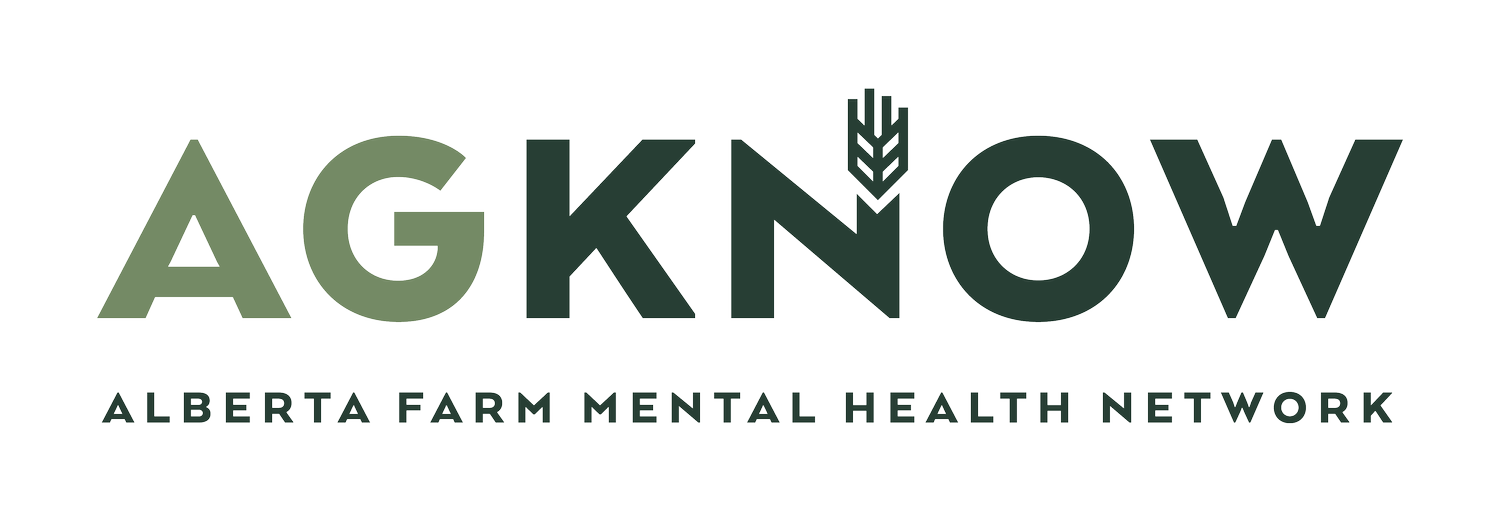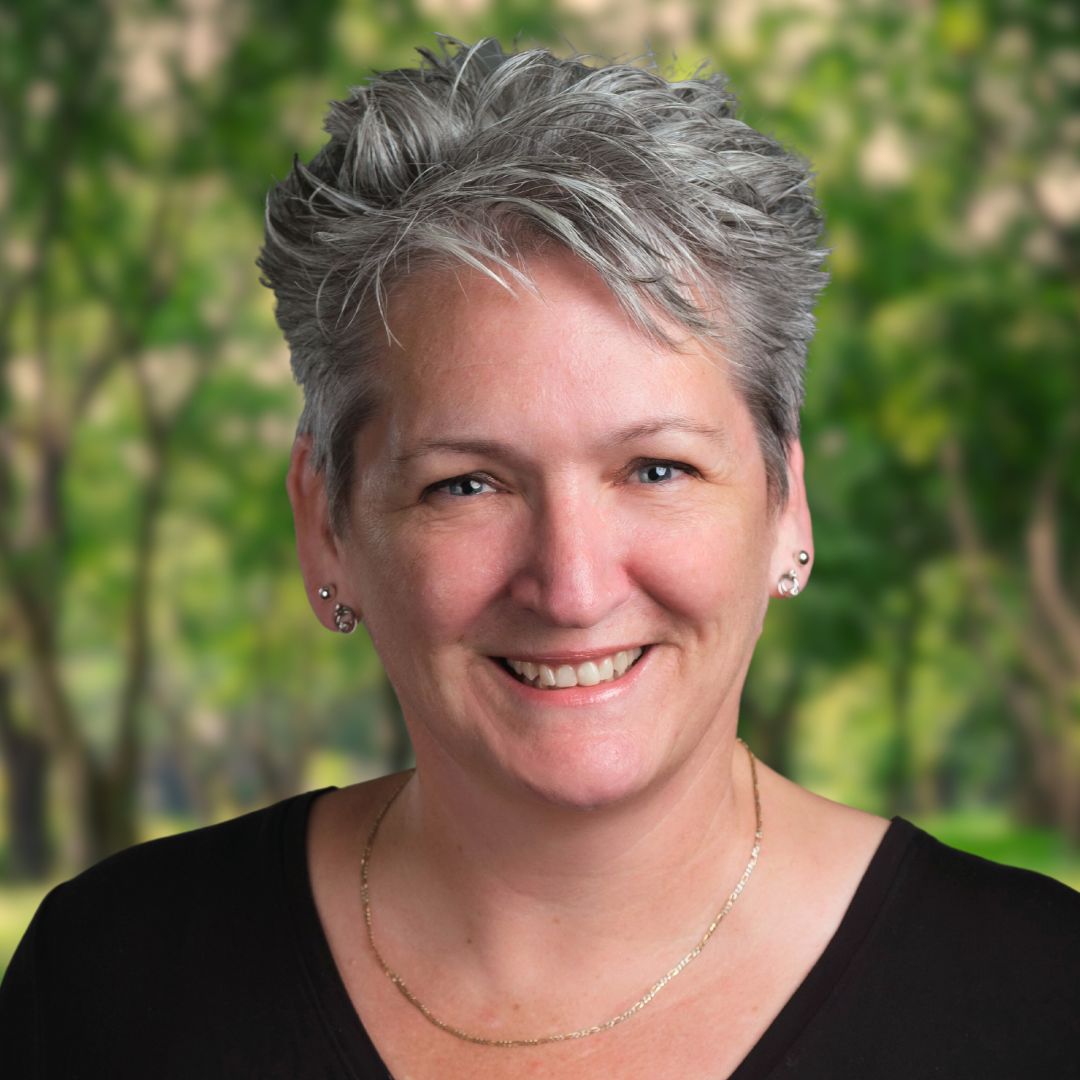THINGS WE (FEAR) NEED TO TALK ABOUT
THINGS WE FEAR NEED TO TALK ABOUT
Suicide – it is not something that comes up in conversation every day. It’s a topic that most people skirt around, not quite knowing what to say or how to talk about it. But people are listening. Many people have been touched by suicide, and a handful of them are taking steps to improve mental health across the board.
While the issue of suicide may be poorly reported on, many people have known someone lost to it. One group in particular was found to be more likely to die by suicide – is farmers. Does that surprise you? Suicide ideation is 2x higher in farmers than in the general population, and a national study on the mental wellness of the farming community has shown that 1 in 4 farmers have felt that their lives were not worth living in the last 12 months. These are startling statistics. AgKnow wanted to learn how our Albertan farming community was faring compared to the rest of the nation.
Dr. Rebecca Purc-Stephenson from the University of Alberta has been collaborating with Agknow to study the mental wellness of farmers because of the unique set of challenges in their careers and chosen lifestyles. The results* are showing that there are seven themes that contribute to farmer suicide:
Maintaining a “farmer” identity
Being so tied to the land and its stewardship the farmer sees the failure of the farm as a personal failure. The identity of a farmer is often not well understood by people outside of agriculture.
Financial crisis
Often brought on by uncontrollable events and outside forces, rather than a lack of hard work & effort. A farmer could give his all and still not be able to get ahead.
Support and Stress of Family
A family could be the saving grace for not contemplating suicide, although the stress of a family going through divorce or not being financially able to pass on a multi-generational farm could be a key component that contributes to suicide.
Living in a Fishbowl
While the farmer’s community should be there to offer support, they also pass judgement. A farmer seeking help for their mental health could face harsh comments from their peers and community.
Isolation from others
When your office is several hundred or thousand acres large, running into someone isn’t always easy. There is no water cooler for conversation and trips into town cost valuable time. Getting help from the family doctor could have you waiting several weeks for an appointment, and by then the crisis could have passed.
Access to chemicals and firearms
The tools of the trade are always within easy reach on the farm. This, and the methods of caring for sick livestock, may contribute to the higher prevalence of suicide amongst farmers and ranchers.
An unpredictable environment
It’s not just the weather, pest and illness that make for an unpredictable life on the farm. Government policies and commodity prices are also out of a farmer’s control. Living with so many unknowns make for uneasiness and can lead to a sense of hopelessness.
The current research being collected with the help of Albertan farmers is giving AgKnow a more accurate insight into the factors affecting the mental wellness of the farmers in this province. AgKnow’s Lead Researcher, Dr. Purc-Stephenson and her team will be sharing the results of their studies in the upcoming months and the concerns around Suicide and how it impacts the farming community is crucial to creating resilient farm communities. Farmers are integral to the communities they live in, volunteering their time and talents to foster a larger sense of family. The loss of one resonates far beyond the farm. Building resiliency and breaking the stigma surrounding mental health means acceptance of the supports that are in place for farmers and farm families when times get tough because farming is a tough business.
Loreen Jones lost her husband Trevor to suicide after a battle with depression. He was a good husband and father but in the eleven years that he has been gone, Loreen reflects “he has missed graduations, a wedding, missed grandbabies, just his kids growing up” and she says “If he could have looked into the future and see what he did and how it affected us, I don’t know if he would have chose that. It’s OK to ask for help.” It is personal accounts like Loreen’s that resonate with AgKnow to help create a farm informed network of therapists and facilitators that are ready for farmers when they do reach out to take control of their own mental health.
AgKnow is currently partnering with Tara Adams, a workplace mental health specialist and owner of Abridge Consulting, whose motto is “let’s get more people more help, sooner”. Tara is adapting her workplace suicide prevention training to the agricultural industry. She will be training a team of mental health workers with a background & interest in farming to deliver programs that are is designed for the Albertan agriculture industry. “Even though it sounds strange, my very favourite thing to talk about is suicide and suicide prevention,” Tara explains. “Talking about suicide is uncomfortable but thoughts of suicide are far more common than we may realize. We have to get folks more comfortable with the words so that we can ask for help and offer help.” AgKnow is hosting Tara’s webinar; Suicide Awareness and Prevention Training in Ag: A Sneak Peek on Sept 27 at 1 pm. Click here to register.
Farm life is a high-stress life. Farmers were never meant to go it alone and AgKnow is working to destigmatize mental health and help providers find strategies that encourage farmers to seek support. Whether it’s accessing resources for yourself, or pointing a farmer in the right direction, AgKnow is your key partner in the evolving landscape of farm mental health. For more information on how we can help or to host an event in your community, visit our events page at agknow.ca/events.
*Citation: Purc-Stephenson, Doctor & Keehn. (2023). Understanding the factors contributing to farmer suicide: A meta-synthesis of qualitative research.
Crystal Fullerton
Agknow Program Coordinator
Veronica Kloiber
Executive Director of Foothills Tourism,
Diamond Valley Councillor and Freelance Journalist



